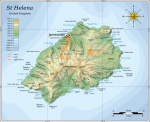
Saint Helena
The British colonial territory of Saint Helena consists of three small volcanic islands in the southern Atlantic Ocean—Saint Helena, Tristan da Cunha, and Ascension. Saint Helena, the largest of the three, lies 1,150 miles west of ANGOLA. Tristan da Cunha is about 2,500 miles to the southwest, and Ascension is 700 miles northwest of Saint Helena. Jamestown, a small port […]

Sa’id ibn Sultan
1791–1856 Sultan of Zanzibar Sa'id ibn Sultan reigned as sultan of Oman and Muscat in the Middle East for some 50 years. During this time he extended his sultanate from Arabia to the east coast of Africa, establishing one of the great trading empires in the region. Sa'id was the son of the lord of Muscat, who was […]

Sahel
The Sahel is a narrow semi-desert region of western Africa. Its name comes from the Arabic word for “shore” or “border,” and it is the southern border of the SAHARA DESERT. The Sahel forms a zone of transition between the desert, which extends across the northern part of the continent, and the forests and grasslands of sub-Saharan Africa. Its […]

Sahara Desert
Stretching across northern Africa from the Atlantic Ocean in the west to the Red Sea in the east, the Sahara is the world's largest desert. It forms a natural barrier between two very different geographic and cultural regions: NORTH AFRICA, with its Arab-influenced Mediterranean culture; and sub-Saharan Africa, where indigenous African culture is dominant. Yet for centuries people have […]
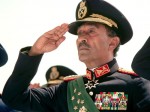
Sadat, Anwar
1918–1981 Egyptian president The presidency of Anwar al-Sadat was shaped largely by the way he conducted Egypt's relationship with Israel. Sadat won the admiration of Arabs for his war against Israel and then earned international praise for making peace with Israel. Born in an Egyptian village, Sadat attended school in CAIRO and then joined the army. Dedicated to the […]
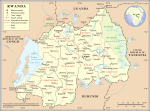
Republic of Rwanda
POPULATION: 11.34 million (2014) AREA: 10,169 sq. mi. (26,338 sq. km) LANGUAGES: French, Kinyarwanda, English (all official); Kiswahili NATIONAL CURRENCY: Rwanda franc PRINCIPAL RELIGIONS: Roman Catholic 65%, Traditional 25%, Protestant 9%, Muslim 1% CITIES: Kigali (capital), 234,500 (1993 est.); Butare, Gikongoro, Gisenyi, Bitarama, Nyanza, Ruamagana ANNUAL RAINFALL: 70 in. (1,770 mm) in the west, 30 in. (760 mm) in the northeast and east ECONOMY: […]

Roman Africa
For centuries North Africa was part of the ancient Roman Empire, linked to Rome by conquest, colonization, and trade. Remains of Roman glory can still be seen at numerous archaeological sites from MAURITANIA in the west to EGYPT in the east. Rome gained a foothold in Africa in 146 B.C., when it conquered the Phoenician colony of CARTHAGE in […]

Rock Art
Many thousands of years ago, the ancestors of modern Africans created rock art—pictures on boulders, cliffs, and the walls of rock shelters. Carved rock art images are known as petroglyphs, while painted ones are pictographs. These rock pictures offer haunting glimpses of the lives of people long vanished. Some images also show an ancient environment very different from that of […]
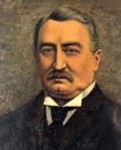
Rhodes, Cecil John
1853–1902 British colonial leader Cecil John Rhodes rose to a position of great wealth and power in Britain's Cape Colony in southern Africa. He developed the region's diamond mines and was responsible for British expansion northward into the land that is now ZAMBIA and ZIMBABWE. The son of a clergyman in Bishop's Stortford, England, Rhodes left home at 17 to […]

Reunion
Reunion, a small island lying about 500 miles east of MADAGASCAR, is ruled as an overseas territory of France. Along with the islands of MAURITIUS and Rodrigues, it forms a region of great natural beauty known as the Mascarene Archipelago. Land and Peoples Despite its small size, Reunion has a diverse geography. Three peaks of over 9,000 feet form […]
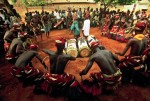
Religion and Ritual
Religious beliefs and rituals play a central role in the everyday lives of most Africans. Few African societies make a rigid distinction between religious behavior and other forms of social conduct. In fact, most African languages lack a word that could be translated as “religion,” and many of the words associated with the idea have a meaning closer to “custom” […]

Refugees
Refugees are forced migrants, people driven from their homelands by violence, fear, or other conditions that make it impossible for them to remain. Throughout the history of Africa, famine, disease, war, environmental disasters, and competition for resources have created refugees by causing people to flee from troubled areas. In the past, most refugees eventually settled in the regions to which […]
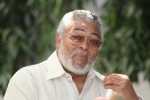
Rawlings, Jerry
1947– President of Ghana Jerry Rawlings, an air force officer, ruled the nation of Ghana from 1981 to 2000. Originally named Jerry Rawlings John, he was the child of a Ghanaian mother and a Scottish father. After attending the respected Achimota Secondary School, he joined the Ghanaian air force in 1967. During his years as a fighter pilot, he […]
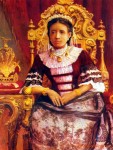
Ranavalona, Mada
1788–1861 Queen of Madagascar Mada Ranavalona was the wife of MADAGASCAR's King RADAMA I, who unified most of the island under the rule of the Merina clan. When Radama died in 1828 without naming an heir, Ranavalona assumed power. She secured her position by negotiating with Merina nobles and military leaders, and by executing all potential rivals. A fierce […]
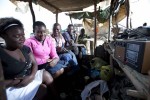
Radio and Television
Radio and television can communicate information, arouse strong emotions, and inspire action. African governments, both the European-run colonial administrations and the independent nations that followed them, have been sharply aware of the power of these broadcast media. Governments have generally owned and controlled most national broadcast stations and have used them to promote their views, often censoring programs that opposed those […]

Radama I
ca. 1793–1828 King of Merina Radama I became king of the Merina kingdom in MADAGASCAR in 1810. He succeeded his father, who had founded the kingdom. In 1816 Radama negotiated an agreement with the British government that provided military and administrative support to Merina. Radama went on to conquer most of Madagascar. Under the terms of the agreement, the […]

Queens and Queen Mothers
African monarchies have always been dominated by men. Their authority over kingdoms is patterned on the role of male heads of households and families. However, royal women have held and still hold considerable power. A few have reigned as queens in their own right, but more often the power, influence, and responsibility of royal women lies in their relationship to […]
Quaque, Philip
1741–1816 Ghanaian missionary and educator Philip Quaque was a missionary, an educator, and the first African to become a priest in the Church of England. Although he failed in his efforts to spread Christianity and education in the Gold Coast (present-day Ghana), his writings are a valuable source of information about the struggle for control of western Africa in the […]
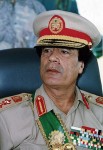
Qaddafi, Muammar al-
1942–2011 Libyan military and political leader Muammar al-Qaddafi (also spelled Khadafy or Gadhafi) has been the head of the government of LIBYA since 1969. He was born in northern Libya into a family of Bedouin, nomadic desert-dwelling Arabs. After attending a local Muslim school, he entered the Libyan Military Academy and began rising through the ranks of the Libyan army. Qaddafi […]
Pyramids
Although many cultures have constructed pyramids, those of Egypt are among the most famous structures in the world. The ancient Egyptians erected huge pyramids as burial monuments for their kings, the PHARAOHS. Around 2650 B.C. an Egyptian architect named Imhotep built the oldest known pyramid for his king, Djoser. It was the first royal tomb in Egypt to be made […]
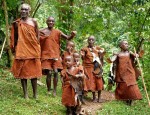
Pygmies
The term Pygmies refers to a number of peoples in central Africa who share two characteristics. Most of them are quite short, and they live by HUNTING AND GATHERING in forests. Since ancient times, both Africans and outsiders have recognized Pygmies as distinct from other people on the continent. Anthropologists do not know whether the peoples called Pygmies are a […]

Publishing
Writing and LITERATURE have a long history in Africa, beginning in ancient EGYPT with the picture-writing called hieroglyphics. Publishing traces its roots to the rise of Islam on the continent, and printed works in Arabic appeared in major cities and trading centers by the 1600s. However, it was through the work of European missionaries and colonial governments in the 1800s […]
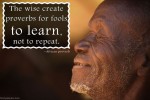
Proverbs and Riddles
In most African societies, proverbs and riddles are forms of art. They are simple and elegant ways to communicate a lot of meaning in few words. Proverbs and riddles play an important role in the traditions of African speech and conversation. African proverbs are sayings that express the shared wisdom of a culture. Based on close observation of life […]
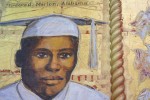
Prophetic Movements
Prophets and prophetic movements have flourished in Africa since the mid-1800s. Prophets—religious leaders with messages about divine judgment or moral law who often make predictions about the future—usually arise in groups facing major social upheaval. By addressing such crises and offering radical solutions, they tend to inspire followers who respond with fervor to their message. Prophetic movements in Africa have […]
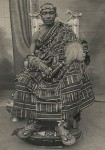
Prempeh, Agyeman
ca. 1871–1931 Asante king Agyeman Prempeh was king of the ASANTE (Ashanti), a people who once controlled much of present-day GHANA and IVORY COAST. Prempeh took power in 1888 after defeating rivals for the Asante throne. As king of a confederacy of Asante chiefdoms, he tried to unite his people by ending fighting in the central region and conquering rebels […]
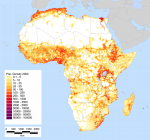
Population
Africa's population is growing at a faster rate than that of any other region of the world. According to the International Data Base of the U.S. Bureau of the Census, the estimated population of the continent in 2001 was 823.2 million people. The same organization projects that by the year 2050 Africa will have 1.8 billion people—perhaps 20 percent of […]
Popular Culture
Popular culture includes all forms of social and personal expression that are widely available and highly visible. Related to the world of ordinary middle-class, working-class, and poor people, this “mass culture” differs significantly from the more formal “high” culture of privileged and well-educated people. Often mass produced and current, popular culture includes forms of music, theater, and the other […]
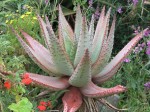
Plants: Varieties and Uses
The enormous array of plants native to Africa have always been a valuable resource for the continent's inhabitants. Africans use plants for food, medicine, fuel, paper, construction materials, and many other purposes. Some plants have been domesticated for agriculture; others are gathered in the wild. Africans have also adopted plants from other parts of the world, and a number of […]
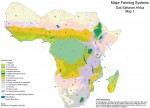
Plantation Systems
In Africa, plantations are large farms that specialize in one or two crops grown for export. They produce many of the continent's most important export crops such as coffee, cocoa, tea, sugarcane, tobacco, rubber, and bananas. Plantations also handle at least some processing of the crops, and typically maintain a large unskilled labor force. Nevertheless, the plantation system does not […]
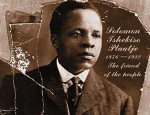
Plaatje, Sol
1876–1923 South African writer An accomplished writer and a founder of the African National Congress, Sol Plaatje worked for political and cultural causes in SOUTH AFRICA. He was born in Boshof in what was then the Orange Free State of South Africa, one of the AFRIKANER REPUBLICS founded by Dutch colonists. He spoke the Setswana (or Tswana) language and […]
Photography
People have been taking photographs in Africa almost since the invention of photography. Early images taken by foreign travelers reflect European views of Africa, while photos taken by Africans shed light on African ideas of beauty, identity, and art. History In the mid-1800s, Europeans who had mastered the complex technique of early photography documented their journeys to Africa. A member […]
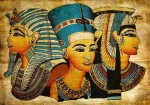
Pharaohs
Although today the kings of ancient Egypt are referred to as pharaohs, that term was never part of their official titles. The word pharaoh developed from an Egyptian phrase meaning “great house” and was first used to describe the royal palace. Around 1500 B.C. Egyptians began using the word to refer to their king, and by 730 B.C. pharaoh […]
Pests and Pest Control
African farmers generally face a tougher battle with pests than do farmers in temperate regions. The warm temperatures and abundant rainfall of the continent's tropical regions create an environment in which pests flourish. To make matters worse, chemical pesticides developed in Western nations are of limited use in Africa. Insects and rodents do the most damage to African crops. […]

Pereira, Aristides Maria
1924–2011 President of Cape Verde Aristides Maria Pereira helped transform CAPE VERDE from an island colony into a modern nation. He fought for independence and then, as president, guided the new country through its first 15 years. Pereira was born in Boa Vista in the Cape Verde Islands off the coast of West Africa. The islands were then a […]

Peasantry and Land Settlement
In Africa, despite increasing urbanization a majority of the population can still be classified as peasants. Peasants are people such as farmers and livestock herders who make their living off the land, generally using only manual labor and nonmechanized technology. Africa's climate and the poor quality of much of its soil have long presented challenges to peasants. These factors have […]
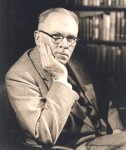
Paton, Alan
1903–1988 South African writer Alan Paton was a white South African novelist and a dedicated political activist. Through his writing and his political efforts, he protested against racial injustice and apartheid. Born and educated in Pietermaritzburg in the Natal province of South Africa, Paton worked as a schoolteacher. Then he served as the head of a reform school for […]
Osei Tutu
ca. 1636–1717 Asante king Osei Tutu, the first king of the ASANTE people of western Africa, united the people in campaigns of military conquest and expansion. In about 1685 Osei Tutu succeeded his uncle as ruler of Kumasi, one of many Asante states. He continued the wars of expansion that his uncle had begun and brought the various Asante […]
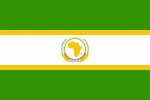
Organization of African Unity
The Organization of African Unity (OAU) is an organization founded to promote harmony between African governments. It seeks to coordinate and increase cooperation among African nations, to defend their independence, and to eliminate all forms of colonialism from Africa. The OAU also promotes international cooperation in keeping with the charter of the UNITED NATIONS and the Universal Declaration of Human Rights. […]

Oral Tradition
Every society passes information about its history, myths, and customs along to new generations. In many African societies such material has been transmitted orally, through the spoken word. This method of passing along literature and history is oral tradition. African oral tradition involves both the material that is spoken—the oral art—and the setting in which it is spoken. Although very […]

Olympio, Sylvanus Epiphanio
1902–1963 President of Togo The first president of TOGO, Sylvanus Olympio was also the first leader of an independent African country to be overthrown by a military coup. Olympio was born into a wealthy family and studied in Europe before embarking on a career with a multinational company operating in Togo. He rose high in the company but was […]
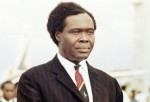
Obote, Milton
1924–2005 President of Uganda Milton Obote sought to end British colonial rule in East Africa and twice served as president of UGANDA. Expelled from Makerere University in Uganda for political activity, he moved to KENYA where he joined a number of African political groups. When he returned to Uganda several years later, he was elected to the newly formed Legislative […]

Nyerere, Julius Kambarage
1922–1999 President of Tanzania Julius Nyerere led the fight to end British rule in Tanganyika (now TANZANIA) and served as the country's president from 1962 to 1979. He also played a key role in Africa's struggle for freedom and social justice, and African independence movements found refuge in his country. The son of a chief, Nyerere was educated in […]

Nwapa, Flora
1931–1993 Nigerian writer One of Africa's leading female authors, Flora Nwapa used her work to promote the role of women in society. She was the first black African woman to have a novel published, and she founded Tana Press in 1977 to bring the works of African women to the public. Born at Oguta in eastern Nigeria, Nwapa […]
Number Systems
The peoples of Africa employ a wide variety of systems for counting objects or representing numbers. Many of these are verbal systems, others involve gestures, and some use pictures or other counting devices. Verbal number systems use words to express quantities. Most are founded on the numerical bases of 5, 10, and 20. For example, the Makhwa of MOZAMBIQUE use […]
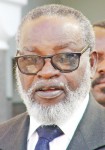
Nujoma, Samuel Shafiishuna
1929– President of Namibia Sam Nujoma was a political organizer in colonial NAMIBIA (then known as South West Africa), who became the country's first president. As a young man, Nujoma worked for the railway but was fired from his job for attempting to organize a union. In 1958 he founded and became president of the Ovamboland People's Organization. His […]

Nubia
Nubia, a region along the NILE RIVER, is now divided between southern EGYPT and northern SUDAN. The region takes its name from the Nubians, a distinctive ethnic group who speak languages of the Nubian family. Although there has never been a nation called Nubia, the region has been home to a number of empires and states. Around 2,000 years […]
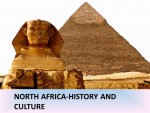
North Africa: History and Cultures
Separated from the rest of Africa by the SAHARA DESERT, the peoples of North Africa share a language and many cultural, political, and economic traditions. The term North Africa refers to the modern states of EGYPT, LIBYA, TUNISIA, ALGERIA, and MOROCCO, as well as the territory of WESTERN SAHARA. In ancient times the lands north of the Sahara and […]

North Africa: Geography and Population
North Africa consists of five countries that border the Mediterranean Sea—EGYPT, LIBYA, TUNISIA, ALGERIA, and MOROCCO. The SAHARA DESERT, the dominant feature of the North African landscape, sweeps across the southern part of the region. The Sahara serves as a geographical boundary between North Africa and sub-Saharan Africa, except in Egypt. It also marks a transition zone from the largely […]

Nongqawuse
ca. 1840–ca. 1900 Xhosa prophet Nongqawuse was a young woman whom the XHOSA people of SOUTH AFRICA regarded as a prophet who communicated with the spirit world. She urged them to kill their cattle—advice that proved tragic for her people and their kingdom. An orphan, Nongqawuse was raised by her uncle, a Christian convert, in South Africa's Transkei region. […]

Nkrumah, Kwame
1909–1972 President of Ghana Francis Nwia Kofi Nkrumah, known as Kwame Nkrumah, was the prime minister and first president of GHANA. Born in the Gold Coast (present-day Ghana), Nkrumah attended Achimota College in the colony. He continued his studies in the United States, where he served as president of the African Students Association, and in England. In London he wrote […]
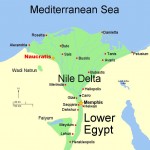
Nile River and Delta
The Nile, the world's longest river, begins in the heart of Africa and empties into the Mediterranean Sea. Snaking north through eastern Africa for more than 4,000 miles, the river passes through nine countries on its way to the sea. The Nile basin, the area drained by the river's tributaries, covers 1.2 million square miles. For thousands of years, […]
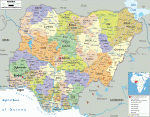
Nigeria
POPULATION: 177.5 million (2014) AREA: 356,669 sq. mi. (923,774 sq. km) LANGUAGES: English (official); Hausa, Yoruba, Igbo NATIONAL CURRENCY: Naira PRINCIPAL RELIGIONS: Muslim 50%, Christian 40%, traditional 10% CITIES: Abuja (Federal Capital Territory), 378,700 (1991 est.); Lagos, Ibadan, Ogbomosho, Kano, Ilorin, Oshogbo ANNUAL RAINFALL: Highly variable, 70–170 in. (1,700–4,310 mm) from west to east along the coast; 20 in. (500 mm) in the […]

Niger River and Delta
The Niger River flows in a great arc through West Africa. The continent's third longest river, after the NILE RIVER and CONGO RIVER, it has carried travelers, traders, and explorers for hundreds of years. The Niger still serves as a highway for people and goods, but it also supplies water for agriculture and hydroelectric power. The delta at the […]
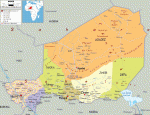
Republic of Niger
POPULATION: 19.11 million (2014) AREA: 489,189 sq. mi. (1,267,000 sq. km) LANGUAGES: French (official); Hausa, Dejerma, others NATIONAL CURRENCY: CFA franc PRINCIPAL RELIGIONS: Muslim 80%, Christian 10%, Traditional 10% CITIES: Niamey (capital), 420,000 (1994 est.); Zinder, Maradi, Tahoua, Dosso, Agadez, Arlit ANNUAL RAINFALL: Varies from 20 in. (500 mm) in the south, to 4 in. (100 mm) at Agadez, to almost 0 in. […]

Ngugi wa Thiong’o
1938– Kenyan author Writer Ngugi wa Thiong'o is known not only for his literary work but also for his political protests and his commitment to writing in African rather than European languages. Born into a peasant family of the GIKUYU people near NAIROBI, KENYA, Ngugi received an education at a colonial high school. He began to write while attending […]

Neto, Augustinho
1922–1979 President of Angola Augustinho Neto was a leader in the fight against colonial rule in ANGOLA and the country's first president after independence. The son of a pastor, Neto went to Portugal to study medicine in 1947 but soon became involved in the Angolan independence movement and was also involved in communist activities. After returning to Angola in 1958, […]
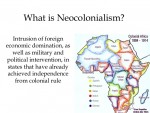
Neocolonialism
After independence, some African nations declared their political allegiance to their former European rulers—such as Britain, France, and Belgium—and continued to rely on them for economic assistance. This policy became known in the 1960s as neocolonialism. Not all African nations chose to pursue neocolonial relationships. Those that had gained independence after violent struggles against European powers, such as ALGERIA, usually chose […]
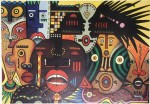
Negritude
Negritude was a black literary and cultural movement that spanned the 1930s to 1950s. The movement first took shape among French-speaking writers in Africa and the Caribbean. The leading figure in the Negritude movement was Leopold Sedar SENGHOR, a poet and philosopher who became the first president of SENEGAL when it won independence from France in 1960. The origins of […]
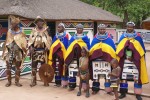
Ndebele
The Ndebele are an offshoot of a group of BANTU-speaking peoples of southern Africa known as the Nguni. The branch of the Ndebele that is centered in ZIMBABWE traces its roots to MZILIKAZI, a former lieutenant under SHAKA ZULU. The other branch, founded by the leader Musi, is located in SOUTH AFRICA. Both branches of the Ndebele at one […]
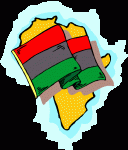
Nationalism
Nationalism is the belief that a group of people have the right to live in and govern their own nation-state. European powers had gained control over most of Africa in the late 1800s and established colonies. In the 1900s, African nationalist movements emerged in many parts of the continent that sought to end colonial rule and European economic power. Eventually, […]
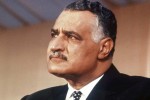
Nasser, Gamal Abdel
1918–1970 President of Egypt President of EGYPT from 1956 to 1970, Gamal Abdel Nasser was a leading figure in the Arab world. The son of a postal clerk, Nasser attended primary school in a small village in the Nile Delta. He moved to his uncle's home in Cairo, where he received his secondary education and then attended law school […]
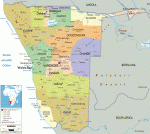
The Republic of Namibia
POPULATION: 2.403 million (2014) AREA: 317,260 sq. mi. (824,295 sq. km) LANGUAGES: English (official); Afrikaans, German, Damara, Herero, Kavango, Ovambo, Nama NATIONAL CURRENCY: Namibian dollar PRINCIPAL RELIGIONS: Christian 80–90%, Traditional 10–20% CITIES: Windhoek (capital), 190,000 (1995 est.); Walvis Bay, Swakopmund, Keetmanshoop, Rehoboth ANNUAL RAINFALL: Varies from less than 2 in. (51 mm) in western Namib and lower Orange River valley to more than 19.8 […]
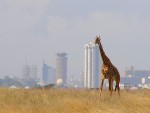
Nairobi
Nairobi, the capital of KENYA, is the largest city in eastern Africa south of CAIRO, Egypt. British colonists founded Nairobi in 1899 as a camp for laborers who were building the railroad from the coastal city of Mombasa to Lake Victoria. A railway yard and depot were established, and the camp grew rapidly into a town. In 1905 the […]
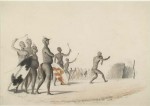
Mzilikazi
ca. 1790–1868 Founder of Ndebele kingdom For a short time in the early 1800s, Mzilikazi served as a lieutenant in the army of the Zulu ruler SHAKA ZULU. After one battle, Mzilikazi kept the cattle he captured instead of sending them to Shaka. When the chief sent men to investigate, Mzilikazi insulted Shaka by cutting the feathers off their […]
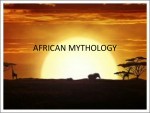
Mythology
Myths are the stories that define a culture. They tell of the creation or beginning of the world; of deities and their relations with humans; and of the values, heroes, and histories of a group or society. Cosmological myths—those about the origin, structure, or purpose of the universe—reveal a culture's ideas about the universe. With the passage of time, myths […]

Mvemba Nzinga
ca. 1465–1543 Ruler of kingdom of Kongo Mvemba Nzinga, son of the ruler of the kingdom of Kongo, was baptized as a Christian in 1491 and took the name Afonso I. When his father died in 1506, Mvemba Nzinga became king, claiming that he had divine help in gaining the throne. He increased his power by selling ivory, copper, […]
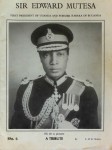
Mutesa II, Frederick
1924–1969 Ruler of Buganda Frederick Mutesa II, known as “King Freddie” by Westerners, was ruler of the East African state of Buganda from 1939 to 1953. Buganda enjoyed special treatment within the British colony of UGANDA until 1953. When the British decided to end Buganda's special status, Mutesa demanded independence for his kingdom. When he also refused to pass along […]
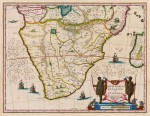
Mutapa
Mutapa, or Mwene Mutapa (meaning “Ravager of the Lands”), is the title held by a dynasty of kings that ruled the area that is now ZIMBABWE and MOZAMBIQUE from the 1400s to the 1880s. Historians also use the term to refer to the state led by these kings. The Mutapa state probably arose from branches of the nearby culture […]
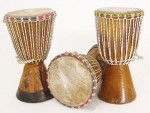
Musical Instruments
Wall paintings in ancient Egyptian tombs show that the people of Africa have made and played musical instruments for thousands of years. Over the centuries, the many invaders of Africa introduced new instruments. Arabs brought musical instruments and styles that became part of the culture of North Africa, the western savanna, and the eastern coast. European colonial armies and missionaries […]
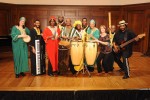
Music and Song
From the rural farmlands of MOZAMBIQUE to the booming dance halls of NIGERIA, music plays an essential role in the lives of Africans. Many regions have rich, deeply rooted traditions of music and song. But Africans have also incorporated in their music various outside influences—of the Arabs who arrived on the continent long ago, of the Europeans who ruled until […]

Museveni, Yoeri
1944– President of Uganda Yoweri Museveni, a former political activist, became president of UGANDA in 1986. Under his leadership, Uganda has achieved considerable political stability and economic growth. As a youth Museveni organized a movement to prevent pastoralists from being forced off their lands. He attended the University of Dar es Salaam in TANZANIA, where he led a student group […]
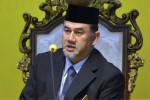
Muhammad V
1909–1961 King of Morocco King Muhammad V was the first ruler of MOROCCO after the country gained its independence from France in 1956. Born Sidi Muhammad, the future king was the son of Sultan Moulay Yusuf. When Yusuf died in 1927, the French colonial authorities named the 18-yearold Muhammad as the new sultan. The French hoped to control the young […]

Mugabe, Robert
1924– President of Zimbabwe Robert Mugabe has been the leader of ZIMBABWE since the country achieved independence in 1980. Born and educated in a Catholic mission in the British colony of Southern Rhodesia, Mugabe became a teacher. In 1956 he moved to the newly independent nation of GHANA. Several years later, he returned to his home country and entered […]
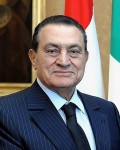
Mubarak, Hosni
1928–2011 President of Egypt Hosni Mubarak became president of EGYPT in 1981 after the assassination of Anwar SADAT. Reelected several times, Mubarak has steered Egypt through a difficult period marked by growing unrest, guerrilla violence, and threats from Islamic political groups. Born in the Nile River delta to a peasant family, Mubarak graduated from the Cairo Military Academy […]
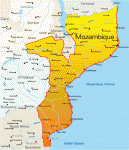
Republic of Mozambique
POPULATION: 27.22 million (2014) AREA: 308,642 sq. mi. (799,384 sq. km) LANGUAGES: Portuguese (official); Sena, Shona, Makua, Swahili, and others NATIONAL CURRENCY: Metical PRINCIPAL RELIGIONS: Traditional 50%, Christian 30%, Muslim 20% CITIES: Maputo (capital), 3,025,000 (2000 est.); Tete, Beira, Quelimane, Sofala ANNUAL RAINFALL: 55 in. (1,420 mm) in center, less in the north and south ECONOMY: GDP $16.39 billion (2014) PRINCIPAL PRODUCTS […]
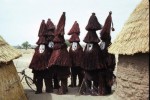
Mossi
The Mossi are the largest ethnic group in BURKINA FASO, making up almost half of the population. They speak Moore, which is used as a common language throughout the country. The Mossi arose from the merging of many different ethnic groups and formed several competing empires. Soldiers known as Mossi conquered the city of TIMBUKTU during the reign of Emperor […]
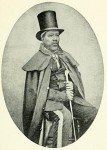
Moshoeshoe I
1786–1870 Founder and king of Basutoland Founder and king of the Basotho nation (present-day LESOTHO), Moshoeshoe I was noted for his military skill and diplomatic abilities. He played a major role in protecting Lesotho from conquest by European settlers, and he helped the country achieve independence. Originally named Lepoqo, Moshoeshoe was the son of a Koena chief. While a young […]
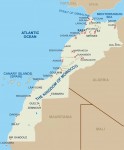
Kingdom of Morocco
POPULATION: 33.92 million (2014) AREA: 178,620 sq. mi. (446,550 sq. km) LANGUAGES: Arabic (official); French, Berber dialects NATIONAL CURRENCY: Dirham PRINCIPAL RELIGIONS: Muslim 98.7%, Christian 1.1%, Jewish 0.2% CITIES: Rabat (capital), 1,496,000 (2000 est.); Casablanca, Marrakech, Fez, Oujda ANNUAL RAINFALL: Varies from about 32 in. (800 mm) to less than 8 in. (200 mm) in the northern coastal lowlands, and 30–80 in. (760–2,030 mm) […]

Money and Banking
African societies had many types of money in the precolonial period, but no banking systems. As Europeans established colonies in Africa in the late 1800s and early 1900s, they introduced uniform systems of money and established banks to handle the exchange of money and other financial transactions. MONEY Money has three distinct functions. It can serve as a medium […]
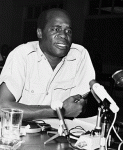
Mondlane, Eduardo Chivambo
1920–1969 Mozambican anticolonial leader Eduardo Mondlane established the freedom movement known as FRELIMO that eventually won MOZAMBIQUE's independence from Portugal. Educated in South Africa, Portugal, and the United States, Mondlane became heavily involved with the movement for Mozambican independence. He concluded that Portugal's inflexible attitude probably meant that war was inevitable for Mozambique. However, he was determined to avoid devastating the country […]

Moi, Daniel arap
1924– President of Kenya In 1978 Daniel Toroitich arap Moi succeeded Jomo KENYATTA as president of KENYA. Moi has managed to remain in power since then, despite a growing opposition and accusations of corruption. A member of the Kalenjin people, an ethnic minority in Kenya, Moi worked as a teacher as a young man. In 1955 he was one […]
Mogadishu
Mogadishu, the capital of SOMALIA, is the nation's largest city and major seaport. During the long civil war that ravaged Somalia in the 1980s and 1990s, large parts of the city were destroyed, and hundreds of thousands of its inhabitants fled to other towns and to the countryside. Mogadishu was founded in the A.D. 900s as a Swahili and […]
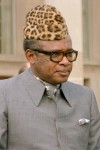
Mobutu Sese Seko
1930–1997 President of Zaire President of Zaire—now known as CONGO (KINSHASA)—from 1965 to 1997, Mobutu Sese Seko ruled as a dictator. His regime gained a reputation for corruption and mismanagement. Despite Zaire's rich natural resources, the nation suffered a serious economic decline under Mobutu's rule. Born Joseph Desire Mobutu in the Belgian colony of Congo, Mobutu was educated in missionary […]

Missions and Missionaries
Christian missionaries have played an important, yet inconsistent, role in African history. While the goal of missions has remained the same—to convert indigenous peoples to CHRISTIANITY, methods and attitudes have changed dramatically over time. During the last 1,500 years, the focus of missionary activity in Africa has shifted from the people in power to the average African. As a result, […]
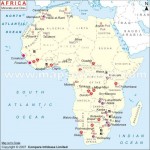
Minerals and Mining
Deep in the ground of the African continent lies a wealth of minerals, metals, and gems. But few African countries—and few Africans—receive the benefits of these resources. The lack of technology and investment money have limited mining operations, and not all countries have significant resources. However, even countries with major deposits have seen most of the profits go to foreign […]
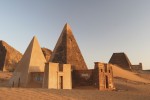
Meroe
Located on the Nile River about 120 miles north of present-day KHARTOUM, the royal city of Meroe was the capital of the ancient kingdom of Kush. The kingdom arose in the region known as NUBIA (in what is now southern Egypt and northern Sudan) about 750 B.C. and flourished until the A.D. 300s. Although strongly influenced by Egypt, the Kushites […]
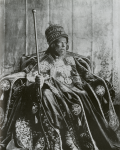
Menilek II
1844–1913 Emperor of Ethiopia Menilek II was the son of the heir to the kingdom of Shewa in what is now central ETHIOPIA. In 1856 TEWODROS II used modern weapons to conquer Shewa and many other parts of Ethiopia. Menilek was captured and taken to Tewodros's court, where he was raised and educated. Nine years later, he escaped and […]
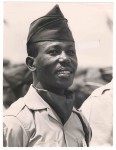
Mengistu Haile Mariam
ca. 1942– President of Ethiopia Mengistu Haile Mariam led a military coup that removed Ethiopia's emperor HAILE SELASSIE I from power in 1974. As head of state, Mengistu hoped to modernize Ethiopian society and unify the country by lessening ethnic rivalries. Mengistu's military career began when he joined the Ethiopian army at the age of 14. After attending officer […]
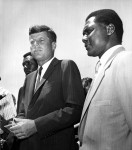
Mboya, Tom
1930–1969 Kenyan labor and political leader Tom Mboya was a labor leader who played a key role in the early government of KENYA after independence. At age 22 he founded a government workers' union and later became general secretary of the Kenya Federation of Labor. At the time, labor organizations had considerable power in Kenya (then a British colony) because […]

Mauritius
The small island nation of Mauritius lies about 500 miles east of MADAGASCAR in the Indian Ocean. It consists of Mauritius and several small islands off to the north and east. Once heavily dependent on the production of sugar, Mauritius has developed a strong economy that includes a variety of manufacturing industries. Of volcanic origin, the island of Mauritius […]
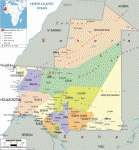
The Islamic Republic of Mauritania
POPULATION: 3.970 million (2014) AREA: 397,953 sq. mi. (1,030,700 sq. km) LANGUAGES: Hasaniya Arabic, French (both official); Wolof, Pular, Soninke NATIONAL CURRENCY: Ouguiya PRINCIPAL RELIGIONS: Muslim, nearly 100% CITIES: Nouakchott (capital), 735,000 (1995 est.); Atar, Zouerate, Kaedi, Nouadhibou ANNUAL RAINFALL: Varies from less than 20 in. (500 mm) in the south to less than 4 in. (100 mm) in the northern desert region […]
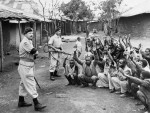
Mau Mau
Mau Mau began as a movement by Africans against British rule in KENYA in the 1950s. Eventually the movement became a guerrilla war. With complex political, economic, and social roots, Mau Mau has been interpreted in various ways. To the fighters and their supporters, Mau Mau was a struggle for liberation. To European settlers and British officials, it was […]
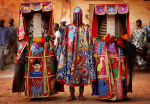
Masks and Masquerades
Many African societies have a rich tradition of masquerades, which are plays, ceremonies, or dances by masked performers. Masquerades provide entertainment, define social roles, and communicate religious meaning. The masks used in such performances may be treasured as works of art. They are also important symbols of ancestors, spirits, or even the history and culture of whole peoples. Masks Masks […]
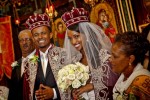
Marriage Systems
Marriage takes many forms in Africa. Throughout the continent, the diversity of systems reflects the traditions, religions, and economic circumstances of a wide variety of distinct cultures. Islamic laws and customs have shaped the institution of marriage in North Africa and in some nations of western and eastern Africa. In recent years, modern life, industry, and cities have brought changes […]
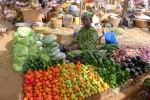
Markets
The open-air market is an important feature of African life in both rural and urban areas. As centers of commerce where cash and barter transactions take place, they play a key role in the economy. Most African agricultural products and craft goods enter the system of exchange at local markets, alongside imported products. Tailors, barbers, carpenters, and other tradesmen come […]

Maranke, John
1912–1963 African religious leader John Maranke was the founder of a successful independent church called the Apostolic Church of John Maranke. Today the church claims over 500,000 members in Africa, and many European converts outside the continent. Maranke was born Muchabaya Ngomberume in Southern Rhodesia (now Zimbabwe). His mother was the daughter of the Shona chief Maranke, whose clan name […]
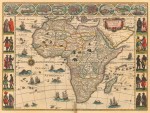
Maps and Mapmaking
If Africans had a mapmaking tradition before the coming of Europeans, no traces of it survived. The mapping of Africa was carried out largely by Europeans until independent African nations began producing their own maps in the late 1900s. The Greeks created the earliest maps of Africa, and they dealt mainly with the northern and eastern coastlines of the […]
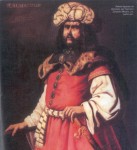
Mansur, al-
1549–1603 Ruler of Morocco Mulai al-Mansur was the sixth, and perhaps greatest, ruler of the Sa'di dynasty of MOROCCO. During his reign (1578–1603) Morocco enjoyed a long period of peace and prosperity, highlighted by its conquest of the ancient city of TIMBUKTU, now part of present-day MALI. A master of diplomacy, al-Mansur managed to balance relations with many competing foreign […]

Mansa Musa
Early 1300s Emperor of Mali Mansa Musa was the most famous ruler of the ancient West African empire of MALI. During his reign the Mali empire reached its greatest size, extending hundreds of miles from north to south and from east to west. However, Mansa Musa is best remembered for his pilgrimage to Mecca, the holy city of Islam, […]

Mandela, Nelson
1918–2013 President of South Africa Nelson Mandela is one of the best-known and most influential political leaders in Africa. Imprisoned for many years because of his activities against apartheid, he later became the first black president of SOUTH AFRICA. For many South Africans, Mandela symbolized the hope for black equality. Born in the Transkei region of South Africa, Mandela […]